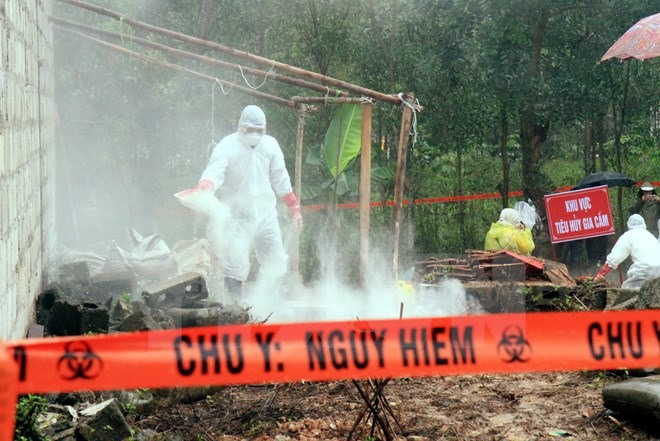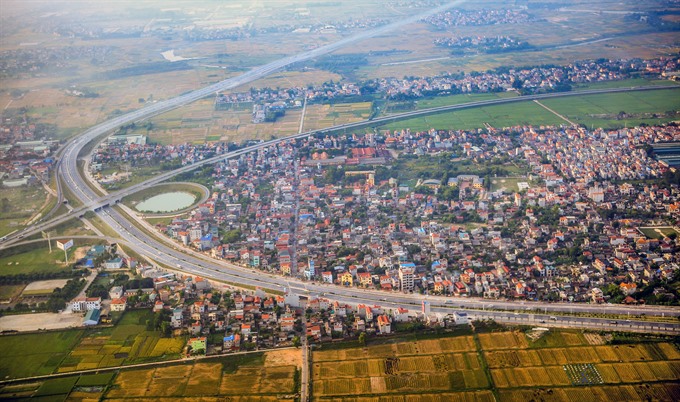
 |
| People join a drill held in northern Lạng Sơn Province to destroy suspected poultry with H7N9 virus. — VNA/VNS Photo |
HÀ NỘI — The Prime Minister and ministries of Health and Agriculture and Rural Development are calling for intensive measures to curb the trafficking, trade and consumption of unknown poultry, especially birds smuggled from China, where avian influenza A (H7N9) continues to spread.
The Preventive Medicine Department under the health ministry announced Wednesday that the avian influenza A (H7N9) is spreading rapidly south and southeast China, including Yunnan and Guangxi provinces--which both share borders with Việt Nam.
The World Health Organisation (WHO) and Food and Agriculture Organisation (FAO) detected changes of H7N9 virus from low pathogenicity to high pathogenicity in poultry and humans.
WHO found H7N9 virus with high pathogenicity in two patients in Guangdong and Taiwan. FAO found high pathogenicity of H7N9 in 41 poultry samples.
With low pathogenicity, H7N9 virus may cause mild or no illness in poultry while with high pathogenicity, the virus can lead to high bird mortality and spread 100-1,000 times faster than low-pathogenicity virus.
So far, there has not been any evidence that the new strain of H7N9 causes more rapid human-to-human transfer. Therefore, WHO have not recommended changing the flu treatment scheme.
According to the Preventive Medicine Department, the health ministry has sped up instruction and training to health officers as well as inspections on disease prevention and control in provinces.
The department recommended people not consume ill/dead poultry or unknown origin. Neither should they kill, traffic or trade unknown-origin poultry.
When detecting ill/dead poultry, people should contact authorities. When having symptoms like fever, cough, chest pain or breathing difficulty after contacting with poultry, people must go to see doctor for immediate treatment.
Flu A (H7N9) was first detected in China in March, 2013 and has surged in five epidemic waves. The fifth wave onset began in October 2016, and it has been the greatest one, with 541 human infections with avian influenza A (H7N9) in 17 provinces of China. — VNS




















